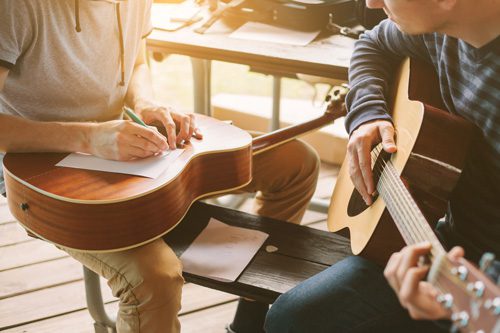
Self-Discovery
Self-discovery will guide you to figuring out activities that fulfill your heart and intellect.
This isn’t so much about finding your passion, although it’s a bonus if you do. It’s more about finding activities that get you out of bed in the morning. By building a life full of meaningful activities, you will enter each day with purpose and fulfillment, rather than just spending your time trying not to drink or do drugs.
What Do You Like?
One of the most challenging aspects of recovery comes with having an identity stripped away. Identity is a multifaceted entity made of both external and internal factors: it’s our rituals, our habits, our friends, our work, our past, and our present.
Having a substance use disorder affects all of these aspects. Using drugs and/or alcohol becomes a daily ritual. The time around using is most often focused on how, when, and where the next fix will come. After so many months or years of living a life revolved around substance abuse, it’s easy to forget who you are.
Bravo! You’ve reached one of the best parts of recovery. Self-discovery can be one of the most rewarding aspects of the recovery journey. Regardless if you’d like to admit or not, underneath all that heartache and regret is a unique being, full of curious wonder and interests.
How to Discover What You Like
Coming out of addiction is a scary time and full of feeling insecure. One of the best ways to overcome those insecurities is to make small, achievable goals. Learn how to cook a frittata. Take a baking class. Drop in on an aerobics class. Take a hike. Rent a mountain bike. Inquire about a guitar lesson.
Many treatment centers offer different activities in order to engage a client’s mind and body. Don’t be afraid to try out different activities to see what you like. If you’ve never tried something, how do you know you don’t like it? One of the best ways to find out if you like something is to try it out.
After trying out a few things ask yourself these three questions suggests an article on finding passion in The Telegraph:
- “What subject could I read 500 books about without getting bored?”
- “What could I do for five years straight without getting paid?”
- “What would I spend my time doing if money wasn’t an issue?”
Maybe an answer doesn’t come automatically, and that’s okay. Oftentimes, the things we are passionate about are hard to see because they are already interwoven into our lives. Think back to before addiction plagued you. Did you play any sports? Were you always keeping tabs on people’s astrological signs? Were you the class clown? Go broad with your thinking. Though we often think of very specific activities when it comes to passion, there are endless possibilities. Even talking can be a passion if you’re great at giving advice.
Don’t disregard anything. Start making a list of things you’d like to know more about. As your list grows, you might even begin to identify associations between like items.
Exercise
Try to find activities that engage both the mind and the body. According to the National Institute for Drug Abuse, exercise is not only beneficial to improve physical wellbeing, but it can also be an essential component to the recovery process. Even further, some research suggests that exercise can restore brain damage caused from narcotic use, most specifically in the brains of people recovering from methamphetamine abuse.
Reviving Passion in the Things You Once Loved
Part of the disease of addiction is that it subdues pleasure usually found in other activities. Or, on the other hand, it acts to distort perception of the activity creating a fallacious belief that the drug or drink is necessary to make the activity pleasurable. For instance, many artists can fall into the belief that they are unable to make art sober. They turn the drug or drink into a muse. The fear of not being able to create becomes intertwined with a fear of getting sober.
According to an article in Psychology Today, the idea that substance use enhances creativity is widely disputed. While studies have shown a relationship between substance use and creativity, the nature of the relationship is not confirmed. Rather than substance abuse enhancing creativity, it could mean that substance use is more common in the creative community than in other populations.
While it may take some time, your love for painting or music will return. In fact, rather than using substance as the muse for inspiration, artistic expression can become the vessel in order to pour your recovery journey.
- psychologytoday.com/us/blog/in-excess/201702/drug-use-and-creativity
